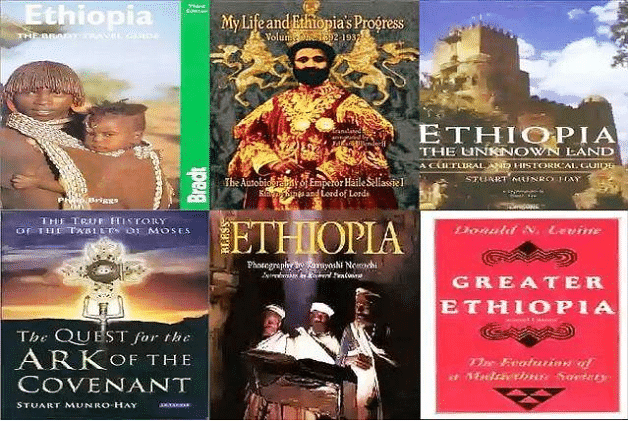Introduction:
Ethiopian literature is a tapestry of history, culture, and storytelling that has evolved over centuries. From the ancient Ge’ez manuscripts to modern Amharic novels, Ethiopia’s literary heritage reflects the nation’s rich traditions and dynamic storytelling culture. This Ethio book review explores some of the most influential books, their themes, and their impact on readers.
Whether you are a literary enthusiast, a researcher, or someone looking to dive into Ethiopian literature for the first time, this article provides an insightful exploration of Ethiopia’s most cherished books.
A Glimpse Into Ethiopian Literature’s History
Ethiopian literature has a long and fascinating history. Some of the earliest works were religious texts written in Ge’ez, an ancient Ethiopian script still used in church liturgies today. As time progressed, Amharic, Tigrinya, and Oromo languages became prominent in storytelling, expanding the literary landscape.
Ancient Ethiopian Writings
- The Kebra Nagast (The Glory of Kings) is one of Ethiopia’s most significant historical texts, detailing the origins of the Solomonic dynasty.
- Religious writings, such as the works of Saint Yared, played a crucial role in preserving Ethiopian history and spiritual teachings.
Modern Ethiopian Literature
- The transition to modern Ethiopian literature began in the 19th and 20th centuries, with authors like Haddis Alemayehu and Be’alu Girma introducing new storytelling styles.
- Today, Ethiopian writers continue to explore contemporary issues, bridging the past with the present through their unique narratives.
Must-Read Ethiopian Books: Classic and Contemporary Selections
Ethiopian literature has produced outstanding books that have captivated both local and international audiences. Here are some must-read titles:
Classic Ethiopian Literature

1. “Fikir Eske Mekabir” by Haddis Alemayehu
This timeless Amharic novel is considered one of Ethiopia’s greatest love stories. Set in the early 20th century, it explores themes of love, social class, and tradition in Ethiopian society.
2. “Oromay” by Be’alu Girma
A politically charged novel that critiques dictatorship and corruption, “Oromay” remains one of Ethiopia’s most controversial and thought-provoking books.
3. “Tobbya” by Afework Gebre Yesus
Written in the late 19th century, this novel is one of the earliest examples of Amharic fiction. It delves into Ethiopian traditions and the struggle between modernity and heritage.
Contemporary Ethiopian Literature
4. “The Shadow King” by Maaza Mengiste
A gripping historical novel set during the Second Italo-Ethiopian War, this book highlights the role of Ethiopian women in wartime resistance.
5. “Beneath the Lion’s Gaze” by Maaza Mengiste
Another powerful novel by Maaza Mengiste, this book paints a vivid picture of Ethiopia during the 1974 revolution, exploring themes of family, resistance, and survival.
6. “The Beautiful Things That Heaven Bears” by Dinaw Mengestu
A poignant novel about an Ethiopian immigrant navigating life in Washington, D.C., this book touches on themes of displacement, identity, and the immigrant experience.
Themes in Ethiopian Literature
Ethiopian books often explore deep and thought-provoking themes that reflect the country’s history, politics, and social dynamics. Here are some recurring themes found in Ethiopian literature:
Colonial Resistance and National Identity
Many Ethiopian books emphasize the country’s resistance against foreign invaders, particularly during the Italo-Ethiopian Wars. This theme highlights Ethiopia’s resilience and pride in its independence.
Love and Social Structure
Romantic novels like Fikir Eske Mekabir explore the complexities of love within Ethiopia’s traditional social hierarchies.
Political Oppression and Revolution
Books like Oromay and Beneath the Lion’s Gaze focus on Ethiopia’s turbulent political history, shedding light on the struggles of ordinary people during times of dictatorship and change.
Migration and the Ethiopian Diaspora
Modern Ethiopian literature often touches on the experiences of Ethiopians living abroad, grappling with issues of identity, belonging, and cultural heritage.
The Role of Storytelling in Ethiopian Culture
Storytelling has always been a vital part of Ethiopian culture. Even before the written word became widespread, oral traditions were used to pass down knowledge, history, and values from one generation to another. Folktales, proverbs, and epic poems continue to play a significant role in Ethiopian storytelling today.
Ethiopian Writers Making a Global Impact
Many Ethiopian writers have gained international recognition for their contributions to world literature. Some of the most notable authors include:
- Maaza Mengiste – Known for The Shadow King and Beneath the Lion’s Gaze, her works have been praised globally.
- Dinaw Mengestu – A prominent Ethiopian-American writer whose novels explore the immigrant experience.
- Be’alu Girma – A fearless journalist and novelist whose works critiqued political oppression.
These writers continue to elevate Ethiopian literature on the global stage, ensuring that Ethiopia’s stories reach wider audiences.
Why Read Ethiopian Literature?
If you haven’t yet explored Ethiopian literature, here are some compelling reasons to start:
- Rich Cultural Insights – Ethiopian books offer a deep understanding of the country’s traditions, history, and social structures.
- Powerful Storytelling – Ethiopian writers craft emotionally compelling narratives that resonate with readers worldwide.
- Unique Perspectives – Reading Ethiopian literature allows you to see the world through the eyes of Ethiopian authors and their characters.
FAQs: Everything You Need to Know About Ethiopian Books
Q1: Where can I find Ethiopian books in English?
Many Ethiopian books are available on platforms like Amazon, Goodreads, and Ethiopian bookshops with international shipping. Some universities and libraries also carry translated Ethiopian literature.
Q2: Are Ethiopian books only available in Amharic?
No. While many classic Ethiopian books are in Amharic, there are also works in Oromo, Tigrinya, and English. Many Ethiopian authors write in English to reach a global audience.
Q3: What is the most famous Ethiopian book?
One of the most well-known Ethiopian books is Fikir Eske Mekabir by Haddis Alemayehu, often regarded as Ethiopia’s greatest novel.
Q4: Who is the most famous Ethiopian writer?
There are many renowned Ethiopian writers, but Maaza Mengiste and Dinaw Mengestu are among the most internationally recognized.
Q5: How does Ethiopian literature compare to other African literature?
Ethiopian literature is unique due to its ancient Ge’ez origins and historical independence from colonial rule. However, like other African literature, it often explores themes of identity, resistance, and tradition.
Conclusion: Embrace the World of Ethiopian Books
Ethiopian literature is a rich and diverse field that deserves more global attention. Whether you enjoy historical novels, political dramas, or deeply personal narratives, Ethiopian books offer something for everyone. By reading Ethiopian literature, you gain a deeper appreciation of Ethiopia’s culture, history, and storytelling legacy.
If you’re looking for your next great read, why not start with an Ethiopian book? You might just discover a new favorite author and a fascinating world of stories.



